CARACAS, Venezuela – A top official with the German company Siemens Energy AG told Bloomberg News on Tuesday that it is “in talks” with the socialist regime of dictator Nicolás Maduro to repair the nation’s crumbling power grid.
Venezuelans have faced years of rolling blackouts and a lack of access to electricity as a result of two decades of socialist mismanagement, first under late dictator Hugo Chávez and currently under Maduro. While Maduro is not legally the president of Venezuela, he maintains control over the armed forces and all functional activities of the chief executive, rendering the rightful head of state of the country, Juan Guaidó, powerless.
Venezuela’s socialist regime, having nearly destroyed everything in the country – the economy, the education system, health care, and public infrastructure, among other institutions – is now seeking the help of “capitalist” foreign investment and private entrepreneurship that it spent so much time chasing out off the country to come help fix and repair their mess.
Eric Soto, Siemens’ business manager in Venezuela, told Bloomberg that the German company is working with the Maduro regime on potential contracts to repair the facilities that provide power to the nation’s capital, Caracas, as well as repairing the power infrastructure used by the nation’s limping oil industry, which is further crippled by the constant blackouts that forcefully limit its operation. According to documents seen by Bloomberg, Maduro is seeking to invest $1.5 billion to increase Venezuela’s power generation by 9,000 megawatts by 2025.
Soto also stated that this is being done thanks to licenses granted by the U.S. Treasury Department that allow Siemens to work with the owner of the power plants, the Venezuelan state-owned Petróleos de Venezuela (PDVSA) oil company, through third parties and with the Maduro regime’s Corpoelec power company. PDVSA was sanctioned by the Trump administration in 2019. Half of Venezuela’s thermoelectric plants use Siemens’ proprietary technology, while the other half uses technology of America’s General Electric Co.
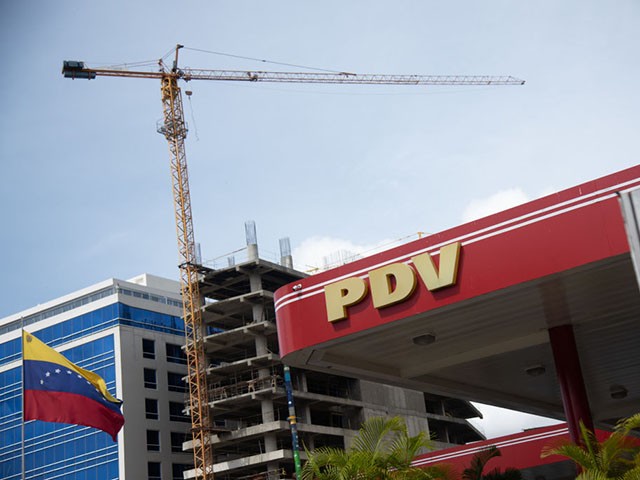
View of PDVSA logo and the Venezuelan flag at a gas station in Las Mercedes on June 1, 2020 in Caracas, Venezuela. (Carolina Cabral/Getty Images)
Historically, Venezuela has not had a reliable power grid and blackouts in the least developed areas of the nation had been recurrent since before the arrival of Chávez’s socialist revolution, even in states like Falcon, home of Venezuela’s Amuay oil refinery complex.
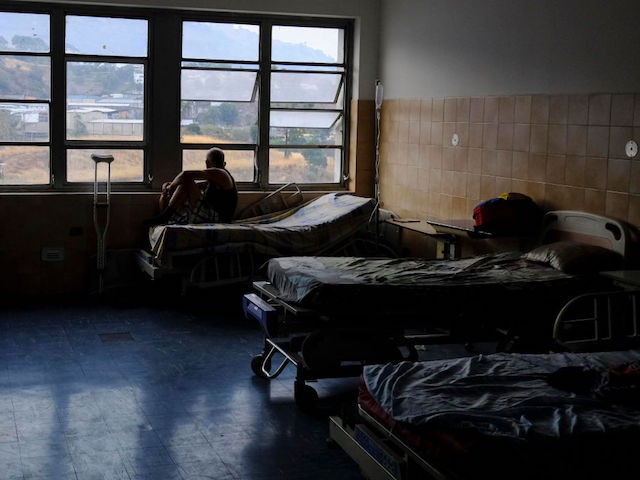
A patient looks out from a window at Miguel Perez Carreno hospital, in Caracas, during a power outage on March 8, 2019. (MATIAS DELACROIX/AFP via Getty Images)
The power blackouts did, however, become substantially worse as a direct result of the socialist regime, serving as an early symptom of the inexorable collapse of socialism that Venezuela went through the past decade.
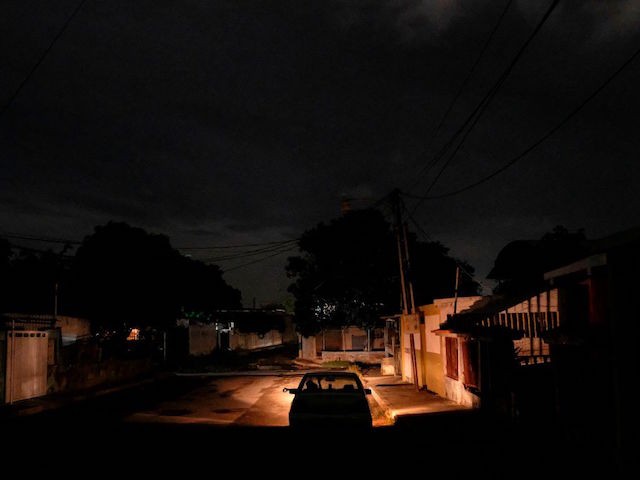
A car is seen on a street during a power cut in Maracaibo, Venezuela on August 15, 2019. (MATIAS DELACROIX/AFP via Getty Images)
Venezuela has been in an “electric emergency” since 2010. At the time, the socialist regime imposed fierce power rationing schedules throughout the country that exist to this day. The regime has never properly maintained the country’s public services infrastructure, and, in the case of the crumbling power grid, junk thermoelectric plants were bought in 2010 at a steep overprice, with the money having simply been embezzled, leaving the country with an ailing power grid that eventually began to collapse further and further.
In March 2019, Venezuela’s power grid finally gave out and the country went through the two worst blackouts in its history, prompting widespread chaos and looting. The nation’s then-currency, the sovereign bolívar, was effectively dead. Without power, no one could access their money that, due to hyperinflation, had to be moved through online banking and smartphone applications.
Caracas, as the capital and the seat of power of the Maduro regime, has been so far exempt from the sheer blunt of the general collapse of the nation’s infrastructure that other cities have to deal with on a daily basis, such as constant blackouts and severe water shortages. Maduro has so far exempt the capital from any rolling blackout schedules — but even the capital’s power grid has begun to crumble further in recent times, with exploding power plants and more recurrent blackouts.
"Buena Vista" es tendencia porque reportan un incendio en subestación eléctrica ubicada en la Av. Francisco de Miranda a la altura de Buena Vista, Petarepic.twitter.com/JIPSUIWZky
— ¿Por qué es tendencia? (@estendenciavzl) April 21, 2022
The Maduro regime has never admitted to having left Venezuela’s power grid to decay. It has blamed the blackouts on the United States or used a variety of fantastical excuses such as cable-eating iguanas, a sniper, terrorist attacks, cyber attacks, and even electromagnetic pulse attacks.
In January, Maduro opted to blame U.S. sanctions for the worsening of Venezuela’s power grid. In 2013, long before the Trump administration sanctioned Maduro, the socialist regime promised that it would fix Venezuela’s power grid within 100 days.
Maduro promised this month that he would fix Venezuela’s worsening water shortages. Shortly afterwards, another malfunction left most of Caracas — including yours truly — without water for an entire week.
Christian K. Caruzo is a Venezuelan writer and documents life under socialism. You can follow him on Twitter here.
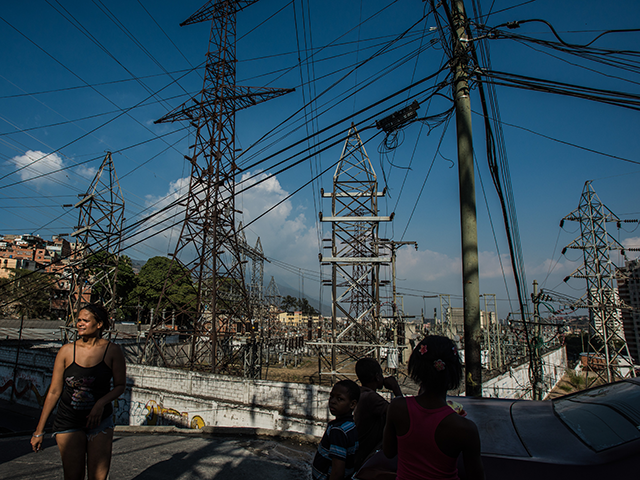
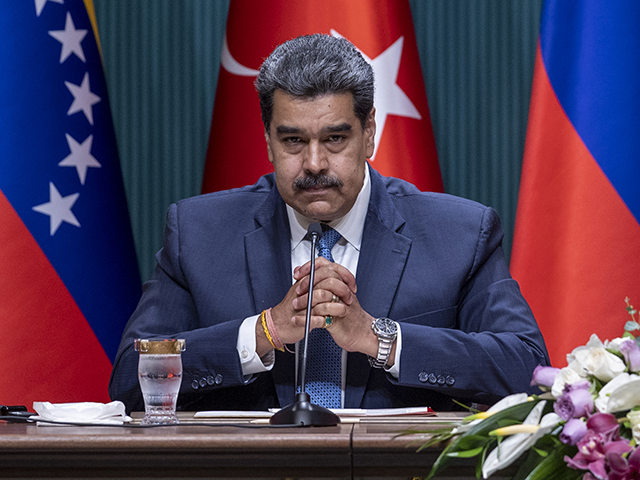
COMMENTS
Please let us know if you're having issues with commenting.